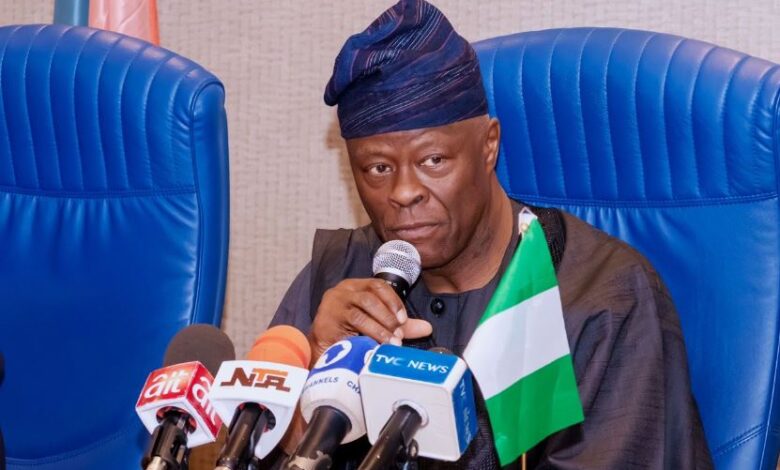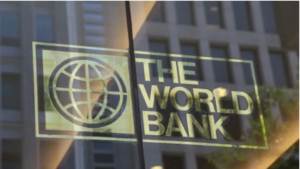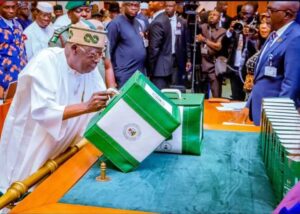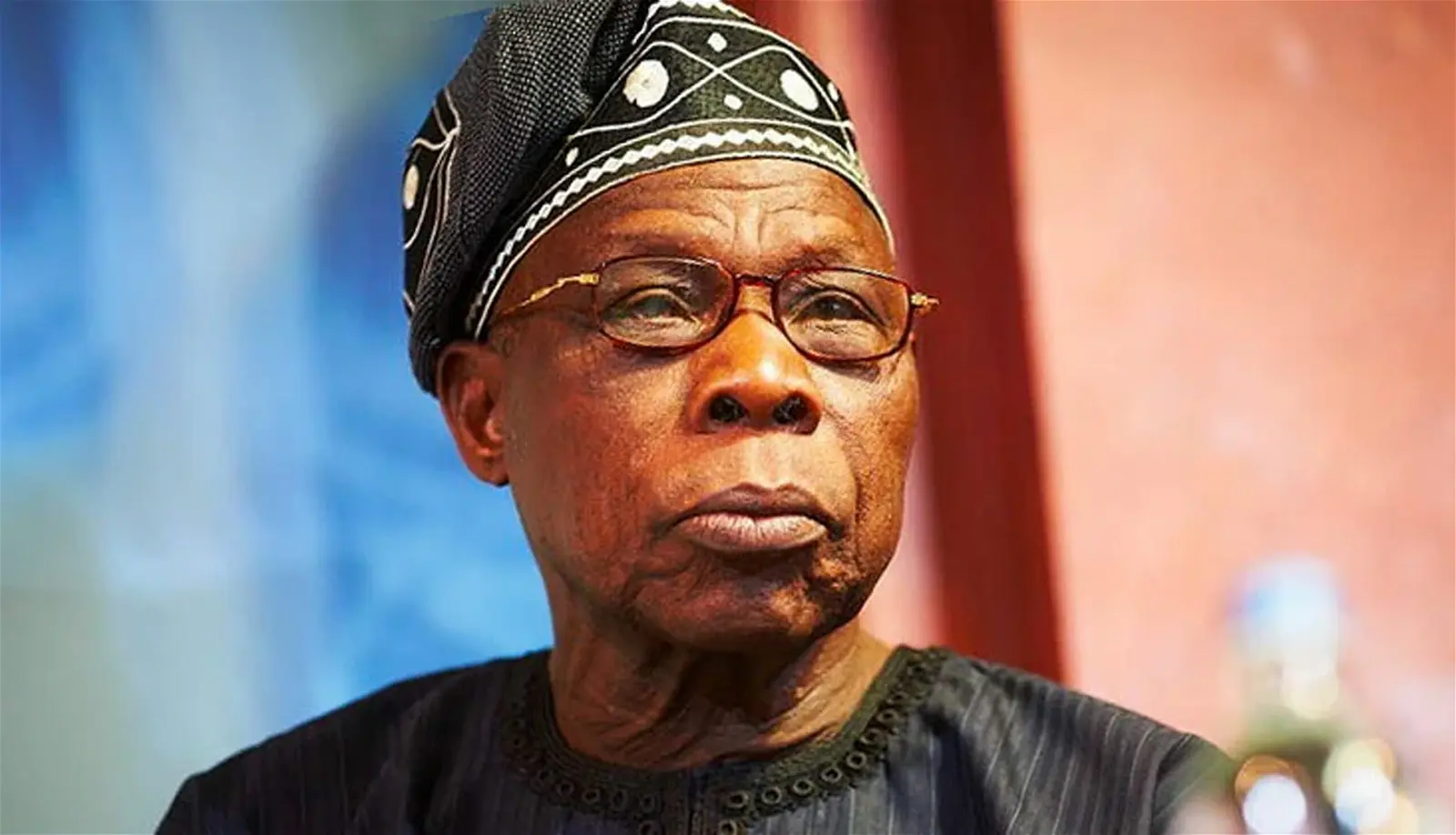N10tr savings from subsidy removal for infrastructure, others – Finance Minister

- World Bank urges govt to push on with reforms
The Federal Government yesterday outlined how key reforms in the downstream petroleum sector and foreign exchange (forex) market would unlock more than N10 trillion to build infrastructure.
Part of the funds saved from the termination of subsidies on petrol and forex will be used to fund education, healthcare, housing and other social services.
The World Bank also yesterday underscored the need for Nigeria to sustain ongoing economic reforms, which it noted had averted a fiscal crisis and stabilised the overall macroeconomic outlook.
Minister of Finance and Coordinating Minister of the Economy, Mr. Wale Edun, while acknowledging the pain points of the ongoing macroeconomic reforms, said the difficult steps taken by the government would birth a new era of long-term, sustainable growth for the benefit of all Nigerians.
Edun spoke at the presentation of the Nigerian Development Update (NDU) in Abuja.
He explained that with the savings from the removal of subsidies, there would be enormous positive multiplier effects at all levels of government as well as the private sector.
Said he: “The key thing here is that for the first time in 40 years, the vexed issue of fuel subsidy, and linked to it the foreign exchange subsidy, costing five per cent of GDP, has gone.
“It takes time to do reform. So, what started on May 29, 2023, was moved, taken from one place, tried to be re-examined in another place, and it is finally extinguished.
“We have market pricing of PMS, and with that, there’s a huge benefit not only to the Nigeria National Petroleum Company Limited (NNPCL), but to the economy as a whole, including the state governments and the local governments, and market pricing of foreign exchange.”
According to him, the decision to remove fuel and forex subsidies was a courageous move by President Bola Ahmed Tinubu, who is determined to chart a long-term and sustainable path for Nigeria’s economic development.
He said the removal of petrol and forex subsidies was conclusive and the end of a long debate, with the government now focusing on how to ameliorate initial pain points and deepen economic growth.
He pointed out that the government would be rolling out a new plan to address unemployment, with a focus on housing financing.
According to him, the new initiative would feature a mortgage scheme offering near single-digit interest rates to boost construction activities and generate significant job creation.
“The plan will be anchored around mortgage and housing financing. We are going to roll out mortgages, long-term, 25-year, 20-year mortgages at relatively low interest rates, near single-digit interest rates, by lending funds,” Edun said.
Also speaking at the event, Central Bank of Nigeria (CBN) Governor Olayemi Cardoso explained the rationale behind the latest 50 basis points increase in interest rate.
He said the Monetary Policy Committee (MPC) had anticipated the latest inflation trends, which prompted its decision to increase the rate.
“Policies and decisions will be based on evidence and data going forward,” Cardoso said, underscoring CBN’s commitment to data-driven policy formulation.
Senior Vice President and Chief Economist, World Bank, Indermit Gill, emphasised the need for unified efforts to drive economic reforms and growth.
Gill called on Nigeria’s economic, monetary and fiscal units and other stakeholders to collaborate more effectively.
Country Director, Nigeria, World Bank, Dr. Ndiame Diop, advised the government to maintain its commitment to ongoing economic reforms, warning that reversing course could worsen the situation.
He said the reforms initiated in May 2023 had stabilised Nigeria’s economy and averted a fiscal crisis.
Diop noted key improvements, such as the reduction in borrowing from the CBN’s Ways and Means Advances, a strengthened foreign reserve position, and a sharp improvement in Nigeria’s debt-service-to-revenue ratio, which dropped from about 100 per cent in 2022 to below 60 per cent this year.
“We need to stick to the plan and keep moving forward. Turning back or opposing the reforms will only make things worse,” Diop said.
According to him, one of the most significant achievements of the reforms was the near doubling of forex turnover in Nigeria’s official forex market.
He acknowledged the downside of the reforms, noting that many Nigerians are grappling with high inflation and a rising cost of living.
He said: “Progress is real, but so are the struggles of many citizens.”
He stressed the importance of complementing fiscal reforms with initiatives that enable the private sector to create jobs, particularly for the youth and elderly, to ensure inclusive growth.
“Staying the course is essential for securing a better future for all Nigerians,” Diop added.
World Bank’s Chief Economist for Nigeria, Dr. Alex Sienaert, echoed the same sentiments, noting that the Nigerian economy has shown resilience despite recent volatility and uncertainty.
He attributed this to robust growth in the services sector and stabilisation in the oil sector.
Sienaert also commended Nigeria’s forex reforms, which have resulted in a more market-reflective exchange rate.
“CBN has shown a renewed focus on addressing the economic crisis, and we will follow through on that,” Sienaert said.
He noted the shrinking fiscal deficit, which decreased from 6.2 per cent of GDP in the first half of 2022 to 4.4 per cent in the same period of 2023.
This, he explained, was largely due to rising revenues, spurred by the removal of the implicit forex subsidy, which had cost the country over N10 trillion in lost revenue.
Lead Economist for Poverty and Equity at the World Bank, Utz Pape, commended the Nigerian government’s efforts to alleviate the financial burden on its citizens.
He pointed to the cash transfer programme, which aims to reach 15 million households—impacting an estimated 60 to 70 million individuals.
So far, around 4.5 million households have received their first payments.
Pape also addressed the impact of the recent minimum wage increase, which he said has primarily benefited only four per cent of Nigerians, most of whom are public sector workers.
According to him, while this reform has provided some relief, it also comes with a fiscal cost and leaves many low-income earners without direct benefits.
Looking to the future, Pape stressed the urgent need for a job creation strategy that includes all Nigerians, particularly the youth.
Said he: “In 2034, there will be 12 million more entrants into the labour market than in 2024.
“These young people will need jobs and opportunities, or they will not be able to escape poverty.”
According to him, failure to create sufficient jobs would turn Nigeria’s demographic advantage into a demographic burden.
“This is fundamentally important for Nigeria to benefit from its demographic dividend,” Pape said.
He assured that as Nigeria continues to navigate its economic recovery, the World Bank remains committed to supporting the government’s efforts.
Bauchi State Governor, Bala Mohammed, who also participated in the discussion, expressed concerns over the insufficient funds allocated to state governments through the Federation Account Allocation Committee (FAAC).
“The money coming from FAAC every month is not enough for state governments to provide infrastructure,” Mohammed said.
He criticised federal policies, noting that they had reduced the purchasing power of Nigerians.
“These policies are not working,” he declared, pointing to the hardship being felt by the masses.
Regarding the implementation of the new N70,000 minimum wage, Mohammed acknowledged the challenges states face.
Said he: “Some states can afford N70,000, some cannot. We in Bauchi State are paying the old minimum wage religiously. We’re looking at paying the new minimum wage as soon as possible.”
He added that while states are loyal to the wage law, the ability to fund essential infrastructure after meeting the new wage obligation remains a serious challenge.
“We are about to be lynched,” he said, noting the pressure on state governments.
From the private sector, Chief Executive Officer of Outsource Global Limited, Amal Hassan, called for a more attractive environment for investors.
“The government must de-risk the economy to make it easy for investors to come in,” Hassan said, adding that despite Nigeria’s negative global image, its talent pool continues to attract attention from international businesses.
The Nation
| Join our new WhatsApp community! Click this link to receive your daily dose of NEWS FLASH content. We also treat our community members to special offers, promotions, and adverts from us and our partners. If you don’t like our community, you can check out any time you like. |












